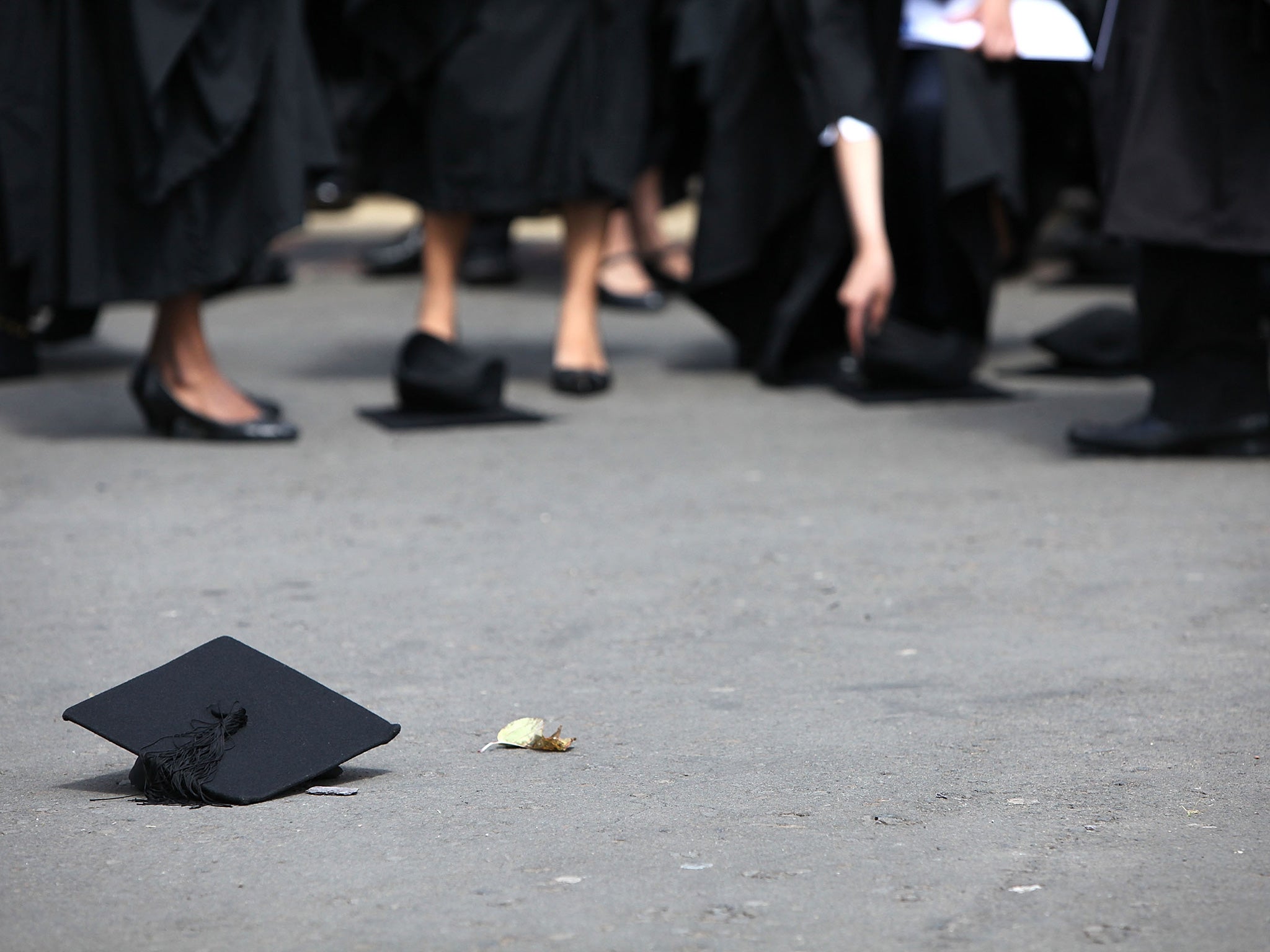Government orders crackdown on fake universities offering bogus degrees
Investigators have identified up to 190 such institutions

A crackdown on fake universities has been ordered by the Government after investigators identified as many as 190 institutions offering bogus degrees.
Experts at verifying degrees will liaise with trading standards officers and other enforcement officers to prosecute or force the closure of any institution they consider to be offering dubious degrees.
Prospects, the graduate experts charged by the Department for Business, Innovation and Skills for carrying out the crackdown, says it believes there has been a “burgeoning number of unaccredited institutions” indulging in degree fraud.
Some trade on the name of existing reputable institutions - such as the University of Wolverhamton (note the missing ‘p’) and Manchester University - the bona fide university in the University of Manchester.
Others pluck the names of well-known places in the UK out of the air - such as Chelsea, Canterbury and Grantchester universities.
A website in China, too, has been exposed as offering bogus degrees which, it says, are from reputable UK higher education institutions - such as the University of Kent.
Others, like a website based in China, offer fake degrees with the imprimatur of an existing reputable institution in the UK on them.
Jo Johnson, the Universities and Science Minister, said the crackdown will “help us to expose unscrupulous organisations and remove misleading websites wherever they make an appearance”.
“Such action is in the interests of all legitimate providers and genuine students because it will help protect the reputation of the UK as a provider of high quality education,” he added.
Higher Education Degree Datacheck, Prospects’ degree verification service, said fake institutions had cut and pasted false grades and signatures on to certificates - which were then passed off as authentic.
Jayne Rowley, business services director at HEDD, said: “Degree fraud is a serious problem. In the first quarter of this year alone we added 42 bogus institutions to the database and there are thousands of fake degree certificates in circulation.

“It’s easy to see why people would be tricked into thinking they could get a genuine degree from these websites. On the surface, they appear credible: they use the word ‘university’ in their title and many imitate legitimate sites with all of the information you’d expect from study guides to lecturers; words of welcome and student testimonials.
“Innocent applicants can be duped out of thousands of pounds to end up with a worthless piece of parchment with a fancy seal.”
Investigators have found what were described as “campuses” have turned out to be just mailing addresses and “course-work” can amount to no more than listing your skills or outlining the degree a student wants.
“If you are offered a degree for little effort and a minimal fee, you have to question its legitimacy,” she added.
The fraud has become so widespread that it has already spawned a pastiche of the bogus degrees operations - the International Association of Fake Universities, which guarantees free degrees to all students and lists as its member institutions the AAAardvark University and the Our Lady of the Britney Spears university.
Course doubts: Overseas recruitment suspended
A total of 57 private colleges had their licences to recruit overseas students suspended last year by the Home Office as a result of doubts over the authenticity of their courses.
Only last month, investigators secured the closure of the Bristol International College, which was offering degrees in media, arts and technology, with a webgame programming specialisation and distance learning opportunities.
The National Distance Learning College, which was based in Middlesbrough, offered computing and business related subjects that it said were accredited by bodies like BTEC and City and Guilds. The Cambridge College of Learning was offering overseas students business management and IT degree qualifications for between £2,500 and £4,000. The organisation, which had no connection with Cambridge University, was found to have just three classrooms and 11 desks when raided by the UK Border Agency. Students were told their visas were invalid and they must return home.
Other names used by operators include Grantchester University – which has an Ascension Island address.
Join our commenting forum
Join thought-provoking conversations, follow other Independent readers and see their replies
Comments